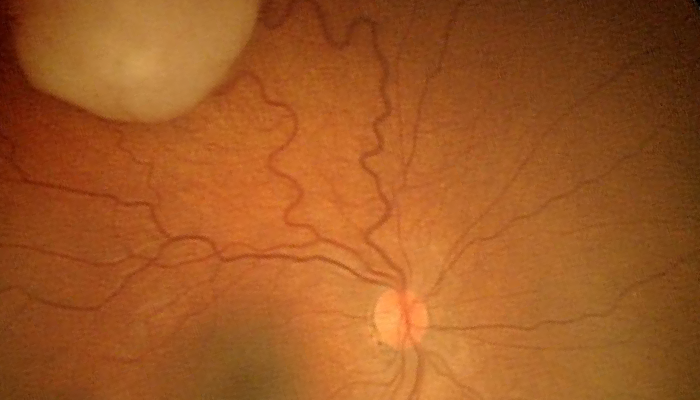
Tero Kivelä, CC BY 2.5 <https://creativecommons.org/licenses/by/2.5>, via Wikimedia Commons
A recent study published in Genes & Cancer has uncovered a potential gain-of-function mutation in the RB1 gene, challenging Alfred Knudson’s long-standing two-hit hypothesis of retinoblastoma, which indicates that two mutational events are needed to inactivate the RB1 tumor suppressor gene. The discovery also suggests that certain RB1 mutations may actively contribute to tumor development, rather than simply leading to loss of tumor suppression.
In their study, researchers based at the Instituto de Física Universidad Autónoma de San Luis Potosí in Mexico analyzed three RB1 mutations found in retinoblastoma patients – pN328H, pD718N, and pR552*. They then generated mutant cell lines to investigate the mutations’ effects on cell proliferation, viability, and migration. While all three mutations disrupted RB protein localization and increased cell proliferation, the pR552* mutation stood out due to its aggressive growth behavior and ability to maintain a cancerous phenotype even in the presence of a normal RB1 allele.
The researchers further identified a Mexican family in which the pR552* mutation was inherited across multiple generations, with 100 percent disease penetrance, reinforcing the idea that certain RB1 mutations may act as oncogenes rather than simple loss-of-function mutations.
Although the authors note that further studies are needed to confirm if other RB1 mutations exhibit similar gain-of-function properties, this discovery provides a new perspective on retinoblastoma genetics, potentially reshaping diagnostic and therapeutic approaches for this pediatric eye cancer.
